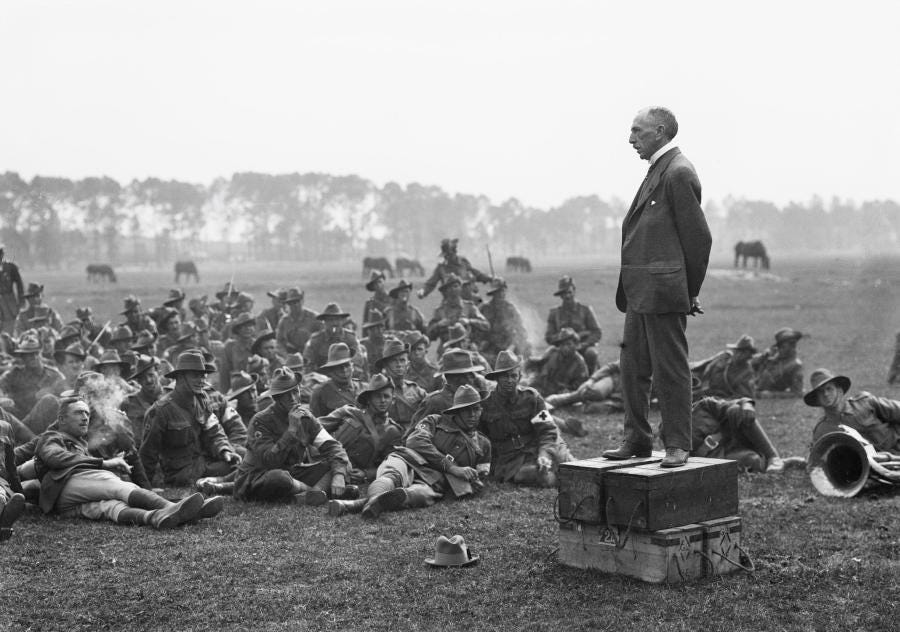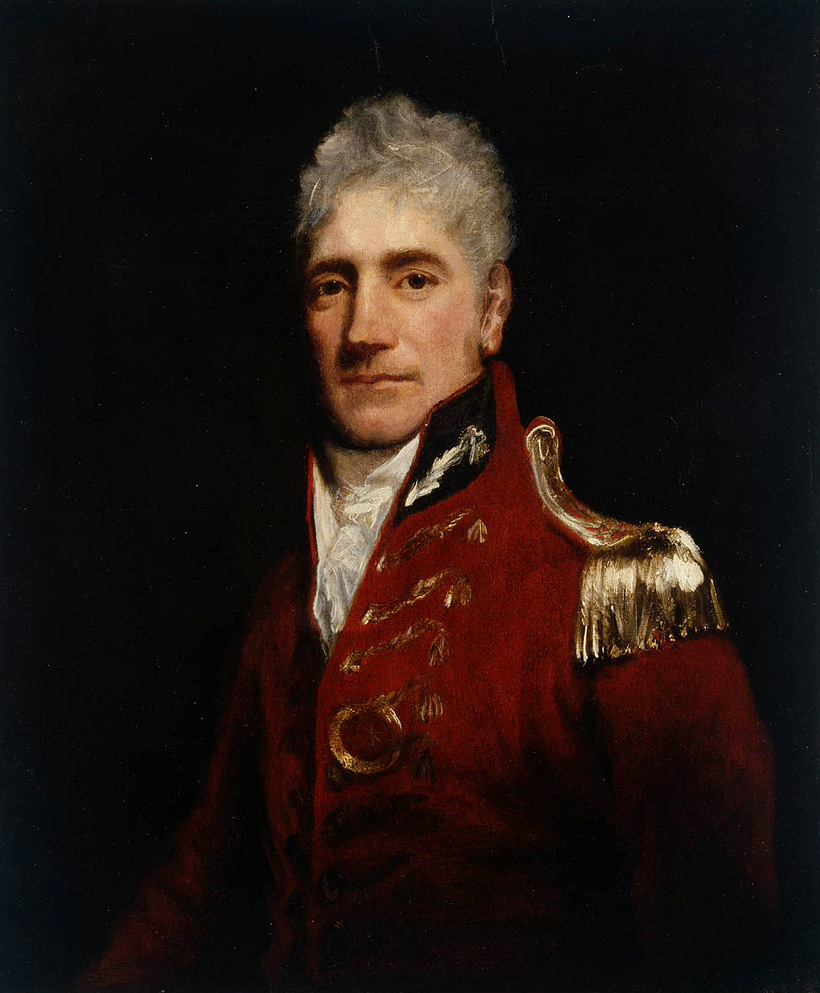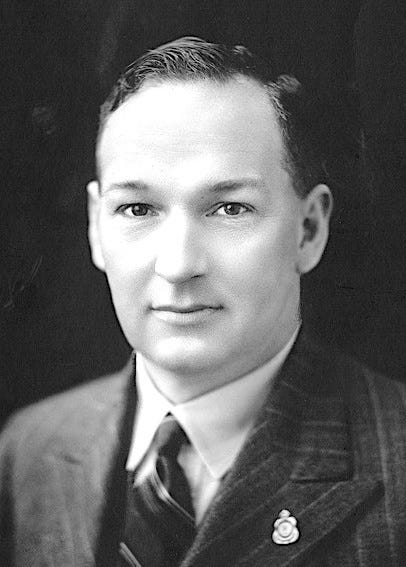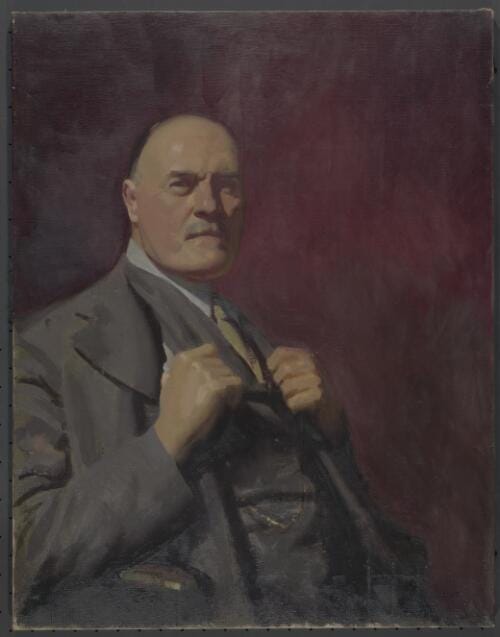Radical Conservatism
The term seems paradoxical, 4 examples from Australian history prove otherwise.
Australian conservatives are beautiful losers. Australian conservatives for generations have failed to meaningfully conserve any aspect of Australian society and instead, as the whole nation has lurched radically leftward, our conservative figureheads and institutions have followed willingly. Nowadays, our supposed centre-right Liberal party presents next to no ideological opposition to the left, while minor parties and pundits are are similarly cowardly.
It was not always this way. Below are the stories of four conservatives who, rejecting petty party politics and personal gain, forged a new path for their constituents and in turn have handed down a brilliant example to those among todays right-wing who wish to restore and advance Australia.
Governor of NSW Lachlan Macquarie
Lachlan Macquarie came to power as the fifth governor of the colony of New South Wales in 1810 following a turbulent period for the fledgling colony, his processor, 4th governor of the colony Governor William Bligh had recently been ousted in a military coup. Colonial NSW was in a poor state when he was appointed, a roaring illicit rum trade (control of which had inspired the before mentioned coup) had all but replaced currency in the colony and moral standards had fallen to such a low that it was estimated 1/2 of all convict women practiced prostitution and 1/3 of all children born in the colony were illegitimate. Governor Macquarie upon his appointment restored order to the colony, restricted the rum trade and put in place policies which encouraged moral family formation.
His achievements do not end here, the governor was also responsible for more than 260 public works, founded the city of Bathurst and personally planned the layout of Hobart. In fact his nation building projects were so prolific that he often came into conflict with the British authorities. This commitment was in line with his vision of the Australian colonies growing into more than a mere penal colonies and he began the process of awarding convicts citizenships following the completion of their sentence, likely contributing to Australia’s modern culture of egalitarian class dynamics.
Governor Macquarie is often referred to as the father of Australia, in part because he was the first to give our country the name, but also in large part because of the weight of his many achievements. The Australian right would do well to study the life of Macquarie, taking careful note of both the sweeping moral reforms he enacted as well as his awe-inspiring nation-building.
SA Premier Sir Thomas Playford IV
Sir Thomas Playford is a name that even the most politically knowledgeable Aussies have likely never heard. Playford rose through the ranks of the South Australian Liberal party advocating for economic liberalisation in South Australia and eventually served the longest term of any elected government minister in Australian history by legislating the exact opposite. Rather than disbanding the power of the state government, once premier Playford won his election he immediately began to use his position to greatly benefit the state of South Australia through protectionist economic policies. His primary means of achieving this was through low taxes, cheap electricity for manufacturers and maintaining low wages (while providing public housing and keeping living costs low through price controls), simultaneously his aggressive forwarding of South Australia’s interests won the state greater shares of federal funding. All this taken together had the effect of creating a massive population boom in South Australia and a rapid growth in the middle class.
Playford was also famous for his socially conservative policies limiting alcohol and gambling in the state, a logical progression from the widespread drunkedness he witnessed among the ANZAC troops during the world wars and his responsibilities enforcing moral standards among the troops; Playford often assisted in dragging ANZAC trainees from the beds of Egyptian prostitutes and back to camp.
Playford brilliantly demonstrated that free market capitalism is not sacred in-and-of itself and instead functions best when subordinated to the power of the state and used as a powerful instrument to secure the interest of his South Australian constituents. Modern conservatives would do well to learn from Playford and reject the tentacles of foreign investment which are throttling our nation’s development - no matter if it means violating the rigid ideological tenants of free-market capitalism.
NSW Premier Jack Lang
To many modern conservatives, Jack Lang’s membership in the Labor Party immediately excludes him from being listed among their ranks. These conservatives are wrong.
It may surprise many to learn that until very recently the Australian Labor Party represented Australia’s foreign and domestic interests far better than any of its political adversaries - being able to claim credit for preserving the integrity of Australia’s borders and demography, representing Christian social teachings in both its economic management and social policy and, especially in the case of Jack Lang, opposing the growth of marxism and communism in Australia.
Lang’s career began from humble beginnings but through a combination of intelligence, strength and sheer force of personality rose to the position of NSW premier and at his height commanded the loyalty of a massive proportion of the state’s population. His foray into politics began when out of his own initiative he successfully lead the residents of Silverware and Newington to form their own local government when the NSW government of the day failed to do so, from there he was reluctantly prodded into state politics by his community and he slowly worked his way through the ranks. Lang came to power at a time when NSW was still suffering the effects of WWI and the Great Depression and to remedy this initiated the construction of grand infrastructure projects such as the construction of the Sydney Harbour Bridge, a policy that saw the creation of hundreds of new jobs and successfully revitalised the economy.
Simultaneously, Lang battled the coordinated Communist infiltration of the ALP, writing several books explaining the incompatibility of communism with Australia’s home-grown labor tradition and eventually when he found the infiltration to be overwhelming, created his own breakaway party named “Anti-Communist Labor” colloquially known as Lang Labor.
Lang’s proposed radical economic reforms intended to shatter the power of the banks in NSW resulted in his removal from his position by the governor-general, and though at the time he could easily have defied this order by calling upon the NSW police force and various Labor militias which were fiercely loyal to him to oppose the comparatively evenly-matched Australian military, he ultimately made the decision to comply because he felt doing so would be violating Christ’s teachings.
All in all, Jack Lang’s legacy is an example of how a conservative in government, should he wish to, could put his people first in a radical manner.
Prime Minister Billy Hughes
Left-wing historian Peter Cochrane in his book ‘Best we Forget: The war for White Australia’ describes Prime Minister William Morris ‘Billy’ Hughes as nothing short of an unstoppable force of nature;
there was one parliamentarian who, throughout the debates on the defence bill and the naval agreement, was given to his own dark premonitions. He proceeded not from this objection or that but from a carefully formulated and thought-out policy for the long- term salvation of the nation, a rock-solid philosophy of all life as ruthless struggle. That parliamentarian was Billy Hughes, sentinel, prophesier, race fanatic and torchbearer for preparedness.
Hughes owed far more to Hobbes and Social Darwinism than he did to the eighteenth-century Enlightenment. He thought democracy a fragile thing, imperilled by its virtues. He saw the world as a racial battlefield, and the cut and thrust of imperial rivalry as an ever-present threat to Australia. He thought the natural conditions of humankind were inherently violent, and the relations between nation states nothing but war and conquest punctuated by occasional interludes.
Though Hughes had his faults, his most admirable trait was his single minded, unswerving commitment to his nation. Hughes had the foresight to recognise the Japanese threat but also the fortitude to chart a course to protecting Australia from said threat.







